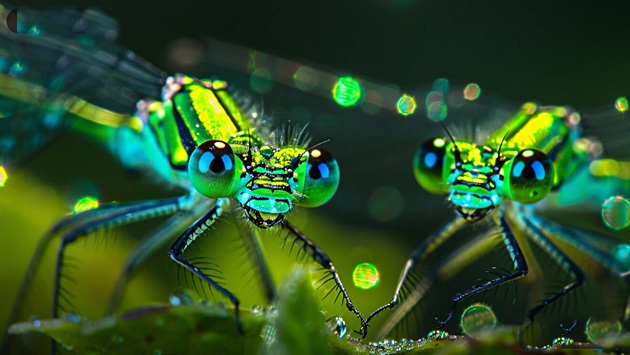1022

Ynsect Seeks Judicial Recovery Amid Financial Struggles
According to AgTechNavigator, mealworm producer Ynsect is seeking to enter a judicial recovery procedure after previously attracting over $600 million in investments, including funding from France's public investment bank, BPI France.
A Blow to the Industry
This represents a significant setback for the sector. Despite the potential of insect farming to reduce reliance on traditional livestock, lower greenhouse gas emissions, and conserve water and land resources, achieving profitability remains a challenging and high-risk endeavor for industry players.
Ynsect filed for judicial recovery at the Evry Commercial Court in France after failing to secure financing under its safeguard procedure, despite "extensive negotiations and efforts."
"Given these circumstances and the company's cash deficit... presenting a backup plan now seems impossible," a spokesperson for Ynsect stated.
The request to transform the safeguard procedure into a judicial recovery process aims to initiate a rapid auction for a takeover under a transfer plan, the company representative explained.
"The judicial recovery procedure, particularly the sale plan auction, will provide potential buyers who have already expressed interest, as well as any new ones, with a different legal framework suited to a swift resumption of the company’s activities.
"Ynsect thus remains under the protection of the Evry Commercial Court and is actively seeking one or more buyers as part of a sale plan," the spokesperson added.
Potential Buyers Interested
Headquartered in Essonne, Ynsect operates two production facilities—one near Dole in the Jura region and the other, the much-anticipated Ynfarm plant, in Amiens, in the Somme region.
Another French insect industry player, Agronutris, which specializes in Black Soldier Fly (BSF) meal and oil for aquaculture feed and pet food, is also facing financial difficulties. Last month, Agronutris was placed under court protection by a commercial court and is seeking to stabilize its financial situation.
Founded in 2018 in Toulouse, Agronutris inaugurated a production plant in Rethel, Ardennes, in the summer of 2022. However, on January 23, the company announced that the Sedan Commercial Court had initiated a safeguard procedure for its holding company, EAP Group.
This move aims to strengthen its financial structure and support its continued development. The procedure was set for six months, with a possible six-month extension.
EAP Group stated that the decision aligns with its objective of gaining time to renegotiate debts with creditors while ensuring business continuity. Agronutris attributed its struggles to a tough economic climate.
The challenges faced by these two French players follow the closure of U.S.-based mealworm producer Beta Hatch a year and a half ago.
Cautious Investors
An October 2024 report from FeedNavigator highlighted the challenging financial landscape for insect producers. Lars-Henrik Lau Heckmann of Denmark's Better Insect Solutions (BIS) emphasized the need for solid business cases, realistic production targets, and strategic partnerships.
He noted that rising interest rates and cautious investors have made securing funding more difficult. As part of the industry assessment, Cédric Provost, president of Canada’s Entosystem, reflected on the sector's evolution, stating that "the era of easy money" ended two years ago, and investors now demand clear pathways to profitability.
Nonetheless, scalable and sustainable companies continue to attract interest, he reported. Given these headwinds, Entocycle founder Keiran Whitaker stated last October that investor education and transparency regarding risks were critical factors in securing funding.
Similarly, Gaetan Crielaard, co-founder of Vietnam-based Entobel, contributing to the insect market outlook, acknowledged the financing challenges, noting that some insect producers have failed to meet key milestones, increasing investor skepticism.




